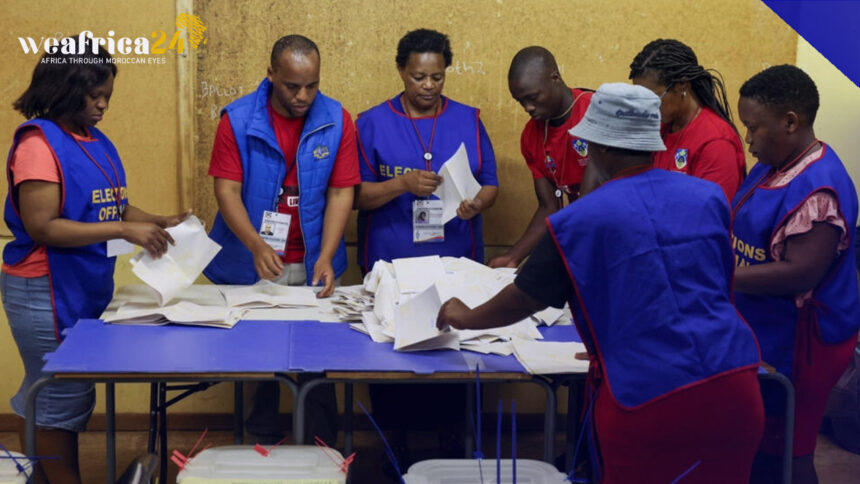The announcement of results from the legislative elections in the Kingdom of Eswatini is expected to take several days. On Friday, September 29, 2023, voters cast their ballots to choose their representatives. The polls closed at 7 p.m. local time.
This election saw candidates vying for the 59 available seats running without any partisan affiliation, as political parties have been banned for half a century. Authorized candidates were selected locally within their constituencies by traditional leaders. Only a few, representing a minority, advocated for a pro-democracy agenda.
Eswatini, formerly known as Swaziland, remains an absolute monarchy where King Mswati III, in power for nearly four decades, holds extensive authority. The Parliament serves merely in an advisory capacity, lacking the ability to enact legislation or nominate a head of government.
Two-thirds of the population live in precarious conditions, while King Mswati III possesses a personal fortune estimated at over $50 million, according to Forbes magazine. In a nation of 1.2 million inhabitants, the vast majority grapples with economic instability.
Opposition movements, officially registered as associations or NGOs, had called for a boycott of Friday’s election, considering it a predetermined outcome. Recent years have witnessed waves of dissent within the kingdom, with demands for greater democratic representation. In 2021, law enforcement and the military intervened to suppress protesters, resulting in the deaths of approximately forty individuals.
The legislative election in Eswatini, shaped by the absence of political parties and the centralized authority of the monarchy, serves as a focal point in the ongoing struggle for democracy and representation within the nation. The outcome remains eagerly anticipated as the kingdom grapples with political tensions and calls for change.







